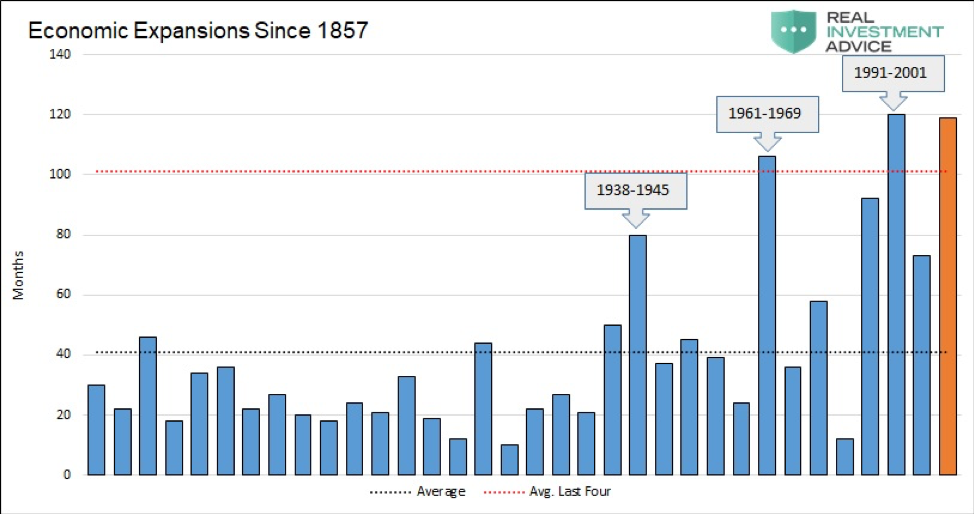Advisor Perspectives welcomes guest contributions. The views presented here do not necessarily represent those of Advisor Perspectives
Q4 hedge fund letters, conference, scoops etc

“It is remarkable how much long-term advantage people like us have gotten by trying to be consistently not stupid, instead of trying to be very intelligent.” – Charlie Munger
As described in a recent article, Has This Cycle Reached Its Tail, an appreciation for where the economy is within the cycle of expansion and contraction is quite important for investors. It offers a gauge to know when to take a lot of risk and when to take a conservative approach.
This task is most difficult when a cycle changes. As we are in the late innings of the current cycle, euphoria is rampant, and everyone is bullish. During these periods, as risks are peaking, it is very challenging to be conservative and make less than your neighbors. It is equally difficult taking an aggressive stance at the depths of a recession, when risk is low, despair is acute, and everyone is selling.
A downturn in the economy, a recession, is coming. As Warren Buffett’s top lieutenant Charlie Munger points out in the quote above, successful navigation comes down to trying to make as few mistakes as possible.
The aging expansion
In May 2019, the current economic expansion will tie the expansion of 1991-2001 as the longest since at least 1857, as shown below.
Since gingerly exiting the financial crisis in June 2009, the economy has managed to maintain a growth trajectory for 10 years. At the same time, it has been the weakest period of economic growth in the modern era but has delivered near-record gains in the stock market and significant appreciation in other risk assets. The contrast– weak growth and record risky financial asset appreciation – makes the argument for caution even more persuasive at this juncture.
Although verbally reinforcing his optimistic outlook for continued economic growth, Federal Reserve Chairman Jerome Powell and the Federal Open Market Committee (FOMC) did not inspire confidence with their abrupt shift in monetary policy and economic outlook over the past three months.
The following is a list of considerations regarding current economic circumstances. The expansion is “seasoned,” but is that a reason to become cautious and defensive and potentially miss out on future gains? Revisiting the data may help us avoid making a mistake or, in the words of Munger, be “not stupid.”
- Despite the turmoil of the fourth quarter, the stock market has rebounded sharply and now sits confidently just below the all-time highs of September 2018. However, a closer look at the entrails of the stock market tells a different story. Since the end of August 2018, cyclically-sensitive stocks such as energy, financials, and materials all remain down by roughly 10% while defensive sectors such as utilities, staples and real estate are up by 7%.
- Bond markets around the world are signaling concern, as yields are falling and curves are inverting (a historically durable sign of economic slowdown). The amount of negative yielding bonds globally has risen dramatically from less than $6 trillion to over $10.5 trillion since October 2018. Since March 1, 2019, two-year U.S. Treasury yields have dropped by 35 basis points (bps), and 10-year Treasury yields have fallen by 40 bps (a basis point is 1/100th of a percent). Two-year Treasury yields (2.20%) are now 0.30% less than the upper-bound of the Fed Funds target rate of 2.50%. Meanwhile, three-month Treasury-bill yields are higher than every other Treasury yield out to the 10-year yield. This inversion signals acute worry about an economic slowdown.
Read the full article here by Michael Lebowitz, Advisor Perspectives

